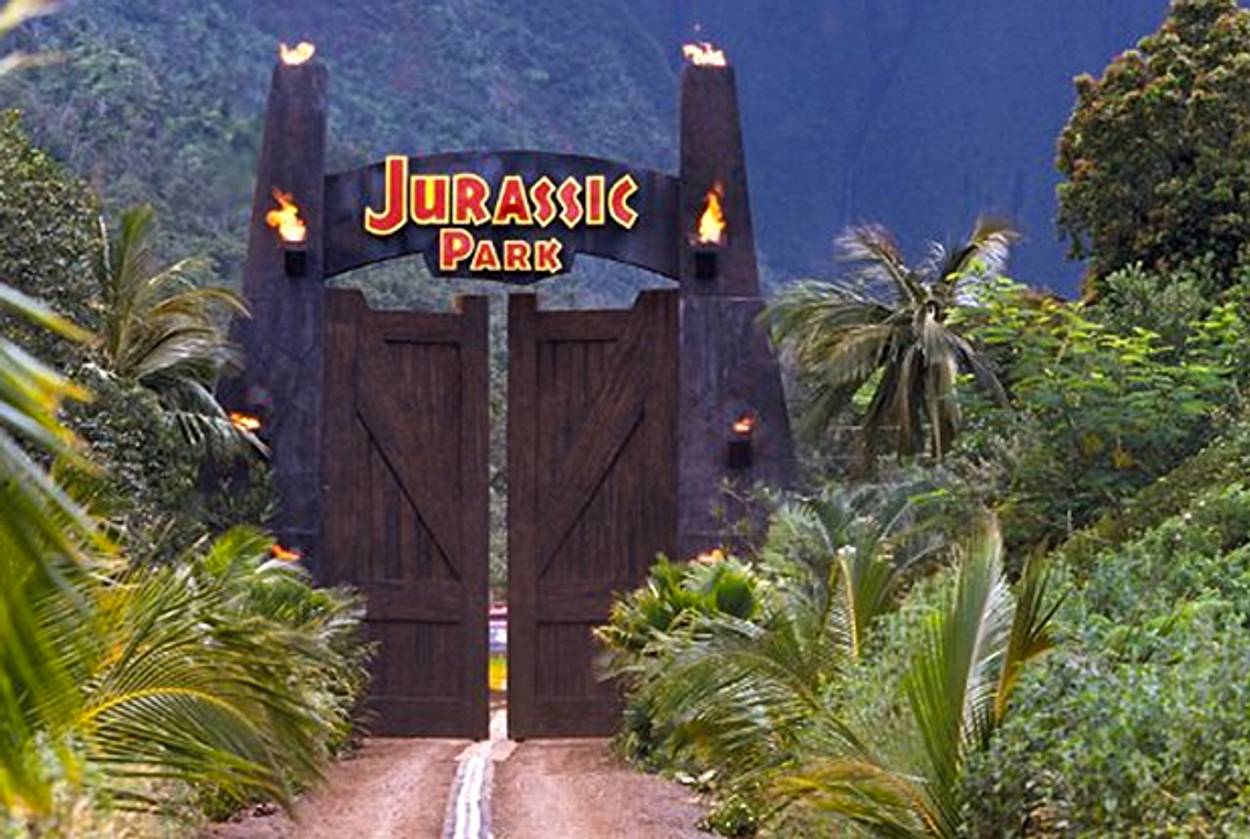The Theology of ‘Jurassic Park’
Viewing Spielberg’s 1993 sci-fi classic through the Lubavitcher Rebbe’s lens




There’s no shortage of marvels in Spielberg’s Jurassic Park—“You want great dinosaurs, you got great dinosaurs,” wrote Roger Ebert—but perhaps the greatest wonder of all is that the director’s sci-fi fantasy appeared, in 1993, just months before the release of Schindler’s List. Spielberg oversaw the final editing of one while in Poland shooting the other—“a bipolar experience,” he later called it.
Generally speaking, Jews and dinosaurs have little in common. Not only did the two never roam the earth together, but the overwhelming majority of rabbinic literature was composed in ignorance of the notion that dinosaurs ever existed. It’s only in the post-Darwinian age that a reckoning has begun, and it hasn’t always been a happy one.
For those who believe the Earth to be some 5,700 years old, fossils and dinosaur bones have prompted serious theological questions—and some quite ingenious answers. In a 1961 letter to one of his followers, for instance, the Lubavitcher Rebbe argued that “one cannot exclude the possibility that dinosaurs existed 5722 years ago.” Extreme shifts in atmospheric pressure or other forces could have altered the tempo and nature of the fossilization process. It is also possible, the Rebbe contended, that God, “for reasons best known to him,” could have created ready-made fossils, much as He created living organisms and man himself.
The characters in Jurassic Park probably wouldn’t find much common ground with the Rebbe’s science, but the film and Chabad nonetheless share a number of preoccupations: messianic figures, the revival of the dead, and the creation of heaven on earth.
At the heart of Spielberg’s enterprise is John Hammond (Richard Attenborough), the developer behind the film’s eponymous park. At the movie’s outset, he’s feeling pretty pleased with himself—and with good reason. He’s managed to populate an island off of Costa Rica with an impressive array of long-extinct creatures. He’s a man given to making lofty pronouncements on the limitlessness of science and his own ability to harness it. “We have made living biological attractions so astounding,” he boasts, “they’ll capture the imaginations of the entire planet.” But when his creations start to run amok and his paradise devolves into a reptilian hell, Hammond is exposed as a false prophet.
His foil is the Jeff Goldblum character, Dr. Ian Malcolm. Though the name sounds as though it could be borne by a Scottish bagpipe champion, there’s little question that Malcolm is there to play a traditionally Jewish role: that of the skeptical wisenheimer—Groucho Marx with a degree in chaos theory. Malcolm serves as the film’s voice of reason—and caution. “The lack of humility before nature that’s being displayed here staggers me,” he scolds. And though he clearly fancies himself a cool, dispassionate man of science, it’s Malcolm who expresses the film’s underlying theology: “God creates dinosaurs. God destroys dinosaurs. God creates man. Man destroys God. Man creates dinosaurs.”
And—in a story as old as the Tower of Babel—disaster ensues.
Jurassic Park will be screened at New York’s Museum of Jewish Heritage on Wednesday, July 9, at 6:30 p.m. as part of the free summer-long series Close Encounters of the Spielberg Kind, which will continue every Wednesday through August 13.
Previous: The Biblical Side of ‘Saving Private Ryan’
Related: 100 Greatest Jewish Films
Gabriel Sanders is Tablet’s director of business development.